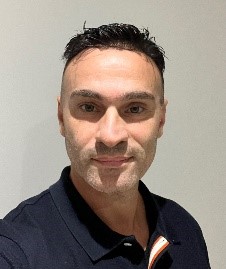
Abstract: When coupled to an ion beam accelerator, the spatial resolution of Transmission Electron Microscopy makes it an invaluable imaging technique to track the real-time response of microstructure under irradiation, shedding light on the mechanisms of formation and growth of defects in materials. To illustrate the beauty and power of the technique, a couple examples will be covered: (i) in-situ experiments of grain growth under irradiation in nanocrystalline metals which led to the development of a thermal spike model based on the direct impact of the point defect cascades on grain boundaries; (ii) in situ irradiation of metal/oxide multilayers shedding light on the defect formation on oxide scales which typically build on alloys used in nuclear reactors (such as Fe and Cr oxides).
Bio: Dr Kaoumi obtained his PhD from Penn State University in 2007 in Nuclear Engineering. Before that, his MS in Nuclear Engineering with a minor in Materials Science at the University of Florida in 2001, and his BSc in Physics at the Institut National Polytechnique de Grenoble in France. Dr Kaoumi’s research interests are in Nuclear Materials with the aim of developing a mechanistic understanding of microstructure-property relationships, and an emphasis on microstructure evolution under harsh environment (i.e. irradiation, high temperature, and mechanical stress) and how it can impact macroscopic properties and performance. Dr Kaoumi has built an expertise in in-situ characterization techniques especially In-situ TEM (coupled with irradiation and/or straining) and how these techniques can be used for relevant nuclear applications, which will be the object of his seminar.

